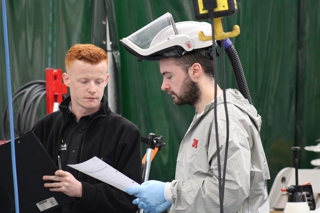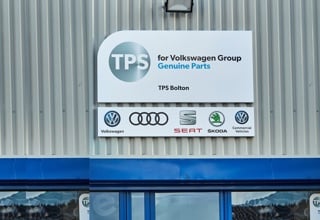The UK automotive sector’s skills gap and recession-prompted cost-cutting measures could stall progress in 2023, according to the Institute of the Motor Industry (IMI).
IMI chief executive Steve Nash has asserted that aftersales providers must maintain their training and apprenticeship provision as cars equipped with new road technology entre the market this year.
And the industry body has said that driving aftersales as a priority could be key to attracting and retaining customers in a market defined by motorists’ desire to make cost-of-living cut-back and impacted by the introduction of agency model retail agreements.
“The CBI says that the skills shortage will be with us for the long term, so employers need to plan long term,” said Nash. “Although apprenticeship numbers have increased significantly, they still aren’t at the pre-pandemic levels they need to reach if we are to avoid long term challenges in finding the talent our industry needs.
“With the skills gap widening and costs increasing rapidly, I have real concerns about the future of our industry, and the impact of employers having to make the tough choice between keeping the lights on and spending on essential training.”
The move to an agency distribution model will be further realised in 2023 with Mercedes-Benz being the first major OEM to take the leap, and others set to follow suit.
Nash believes the shift will create a real opportunity for investment in skills as the capabilities of staff become more of a customer choice differentiator.
IMI policy manager Hayley Pells believes aftersales focussed businesses will succeed in a new automotive climate in which cash-strapped consumers risk creating a “road safety disaster”.
“As the current economic challenges continue into the New Year, drivers are looking to cut costs wherever possible,” she said.
“It has been suggested that motorists will feel the MOT test is an unnecessary expense with RAC research saying that many will continue to use their vehicle even when the MOT has expired.
“If MOT tests are indeed pushed off the priority list, it’s not an unfair assumption that the more expensive maintenance costs including vital checks on autonomous and driver assistance systems will also fall down the to-do list, leaving in their wake a perfect storm for road safety disaster.”
Pells also believes the sector also needs to be ready for challenge from outside automotive. She said: “Looking at external influences, Uber has outsourced their AI programming language, Pyro, and have an ambitious car programme. Indeed, software defined vehicles are going to be a whole new shouting match with the big players teaming up – Renault with Google for example are creating a ‘digital twin’, a virtual copy of a vehicle that offers advanced artificial technology capabilities reportedly to allow ‘for easier and continuous integration of new services into the vehicle and the creation of new onboard and offboard applications.
“All of this means that 2023 should see us take a big leap into the future of road travel, but the industry needs to come together to ensure it is ready to help not hinder this exciting progress.”





















Login to comment
Comments
No comments have been made yet.